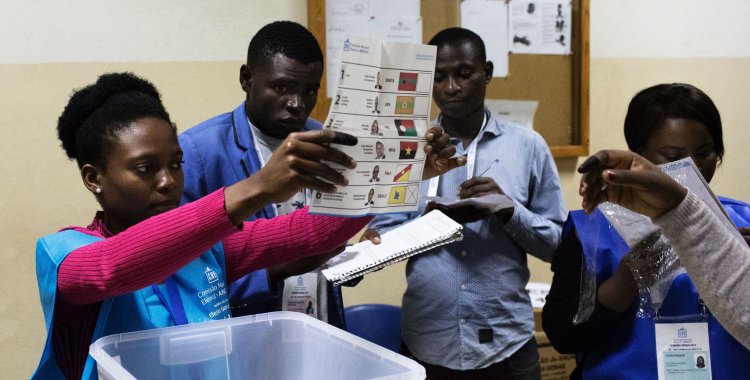For the civic activist and teacher José Gomes Cheik Hata, the CNE "should be an independent body, but it is not, above all because of its excessively partisan composition and commanded by the ruling party".
"It means that the majority of deputies that the MPLA (Popular Movement for the Liberation of Angola, in power since 1975) has in parliament is also reflected in the CNE and there is no independence there," said the activist, during a debate on "Fraud Electoral - How the People Can Fight".
According to the activist of the well-known 15+2 process, in which a group of activists was arrested in Luanda, in 2015, accused of "the crime of preparatory acts for the practice of rebellion", the current government body in charge of managing the electoral register " indicates fraud".
"Other elements that expose fraud is the control of the essential core of the vote, this core occurs in polling stations, and there is no reliability there", pointed out Cheik Hata, one of the speakers at a debate promoted, in Luanda, by the Observatório da Imprensa .
One of the organizers and speakers at the event, Dito Dali, defended the alteration of the current composition of the CNE, stating that the current president of the organ, Manuel Pereira "Manico", elected in 2019, amid protests, "does not enjoy credibility and integrity moral".
Dito Dali made it known that the debate aims to involve the entire civil society in order to "find a strategy on how to stop electoral fraud in 2022", considering that "without political change Angola will never have the path of development".
"That is why we understand that for the removal of the ruling regime there must be an independent CNE, whose composition must include members of civil society, churches, unions and others," he said, speaking to journalists.
Angola, said the activist, "is the only country in the SADC (Southern African Development Community) where the CNE is party to opposition parties and the party that supports the state and is very discriminatory in terms of political representation".
Civil society "must be represented in the CNE", defended Dito Dali, for whom it is necessary to exert pressure and define strategies on how to fight fraud.
But the first step, he stressed, is not to "allow people to go to elections with a bogus electoral law" and for that it is necessary to "pressure reform in electoral legislation, reform in the composition of the CNE".
The political scientist Olívio Nkilumbu pointed out the relevance of the reflections on electoral processes in Angola, stating that it is possible "through control, to arrive at electoral truth through a competition of all the living forces in the country".
"And in this way it is possible not only to control, but to discourage fraud, on the one hand, and to bring an approach to the exact result of what happened and from there start to create a stronger political conscience towards control and valorization of the vote", he defended.
Olívio Nkilumbu listed "various elements", which in his view point to fraud, stating that in Angola the "promotion of underdevelopment is a way of maintaining political power".
On the other hand, he pointed out, there are "institutions that directly contribute to the structuring of fraud, from legal elements, to hiring companies that provide electoral logistics services, civil and military houses, ministries and other bodies".
"Our CNE is one of the only ones in SADC that is against the grain, it is not independent, and does not obey criteria other than the political one, there is no civic side to it and if we manage to counteract this element, I understand that it is possible to reduce influence and fraud ", defended the political scientist.
The need to "work hard to avoid electoral abstentions in elections", was also defended by Olívio Nkilumbu, pointing to the need to create a "united front for electoral justice and freedom".
This united front, he explained, "is in the sense that there is a single front to control the electoral process, not just political parties, but civil society in general, churches, organizations that fight for citizenship and then it is possible to create a force Block".
Journalists William Tonet, Luzia Moniz and activists Hitler Samussuku and Domingos da Cruz were other speakers in this debate that took place in the auditorium of the Pauline Sisters, in Luanda.
The next general elections in Angola are scheduled for 2022.







